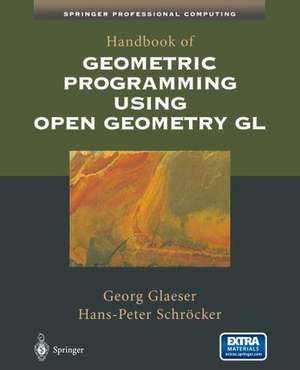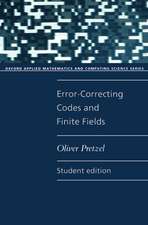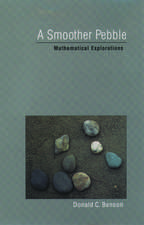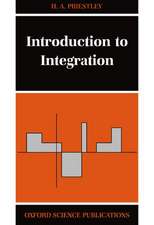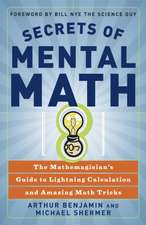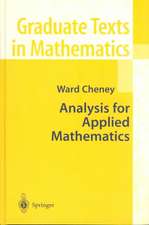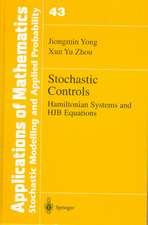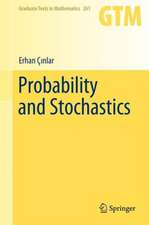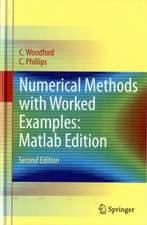Handbook of Geometric Programming Using Open Geometry GL
Autor Georg Glaeser, Hans-Peter Schröckeren Limba Engleză Paperback – 13 ian 2014
| Toate formatele și edițiile | Preț | Express |
|---|---|---|
| Paperback (1) | 662.00 lei 6-8 săpt. | |
| Springer – 13 ian 2014 | 662.00 lei 6-8 săpt. | |
| Hardback (1) | 1170.99 lei 6-8 săpt. | |
| Springer – 30 iul 2002 | 1170.99 lei 6-8 săpt. |
Preț: 662.00 lei
Preț vechi: 827.51 lei
-20% Nou
Puncte Express: 993
Preț estimativ în valută:
126.75€ • 131.99$ • 105.17£
126.75€ • 131.99$ • 105.17£
Carte tipărită la comandă
Livrare economică 13-27 februarie
Preluare comenzi: 021 569.72.76
Specificații
ISBN-13: 9781468492897
ISBN-10: 1468492896
Pagini: 700
Ilustrații: XX, 676 p. 327 illus. With online files/update.
Dimensiuni: 191 x 235 x 40 mm
Greutate: 1.18 kg
Ediția:Softcover reprint of the original 1st ed. 2002
Editura: Springer
Colecția Springer
Locul publicării:New York, NY, United States
ISBN-10: 1468492896
Pagini: 700
Ilustrații: XX, 676 p. 327 illus. With online files/update.
Dimensiuni: 191 x 235 x 40 mm
Greutate: 1.18 kg
Ediția:Softcover reprint of the original 1st ed. 2002
Editura: Springer
Colecția Springer
Locul publicării:New York, NY, United States
Public țintă
Professional/practitionerDescriere
Overview At the beginning of 1999, Springer-Verlag published the book Open Geo- try OpenGL +Advanced Geometry. There, the authors Georg Glaeser and Hellmuth Stachel presented a comprehensive library of geometric me- odsbasedonOpenGLroutines.AnaccompanyingCD-ROMprovidedthesource code and many sample ?les. Many diverse topics are covered in this book. The theoretical background is carefully explained, and many examples are given. Since the publication of Open Geometry, the source code has been improved andmanyadditionalfeatureshavebeenaddedtotheprogram.Contributorsfrom allovertheworldhavecomeupupwithnewideas,questions,andproblems.This process has continued up to the present and Open Geometry is growing from daytoday. In order to make all of these improvements accessible to the public, and also in order to give deeper insight into Open Geometry, we decided to write this new Handbook on Open Geometry GL 2.0. It will ?ll certain gaps ofOpen Geometry 1.0 and explain new methods, techniques, and examples. On the accompanying CD-ROM the new source code and the sample ?les are included. The Handbook now contains 101 well-documented examples and the reader is able to learn about Open Geometry by working through them. In addition, we present a compendium of all important Open Geometry classes and their methods. vi Preface However, we did not intend to write a new tutorial for Open Geometry. The Handbook is rather a sequel, written for the readers of the ?rst book and for advancedprogrammers.Furthermore,itisasourceofcreativeandgoodexamples from diverse ?elds of geometry, computer graphics, and many other related ?elds like physics, mathematics, astronomy, biology, and geography.
Cuprins
Introduction * 2D-Graphics * 3D-Graphics I * 3D-Graphics II * Open Geometry and Some of its Target Sciences * Compendium of Version 2.0 * How to Expand Open Geometry * APPENDICES A-An Open GL Function Reference * B-List of Examples * C-Installation of Open Geometry * Index
Recenzii
From the reviews:
"The present book is a comprehensive reference on the practice of geometrics and graphics programming. It is based on and utilizes the industry-standard open-source graphics API, Open GL®. … This handbook is written for both beginners and advanced OPEN GEOMETRY users, using any standard computer operating system … . They will learn how to use these methods and classes and apply them in theoretical and practical applications … as well as create their own easily programmed extensions using C++ language." (G. Ciobanasu, Zentralblatt MATH, Issue 1008, 2003)
"The present book is a comprehensive reference on the practice of geometrics and graphics programming. It is based on and utilizes the industry-standard open-source graphics API, Open GL®. … This handbook is written for both beginners and advanced OPEN GEOMETRY users, using any standard computer operating system … . They will learn how to use these methods and classes and apply them in theoretical and practical applications … as well as create their own easily programmed extensions using C++ language." (G. Ciobanasu, Zentralblatt MATH, Issue 1008, 2003)
